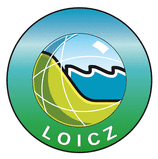ZEF Publication: Local Knowledge as Strategic Resource: Fishery in the Seasonal Floodplains of the Mekong Delta, Vietnam
Water in the Mekong Delta is omnipresent and plays a crucial role for the rural population depending on that resource in the pursuit of diverse livelihood activities. This article focuses on the social interaction of paddy farmers and landless people during the annual flood season from a local knowledge perspective. It will be argued that local knowledge turns into a strategic resource in the context of growing competition for decreasing natural water products. Knowledge is not like “light” hence the strategic moment as well as the tacit component of local knowledge makes its sharing a technically limited form of interaction which is based on a delicate process of trust-building. The current transformation process of agricultural modernization as pushed forward in the Mekong Delta will probably aggravate livelihood insecurities in the future. Local knowledge as adaptive asset in this process of changing society-water relationships will be analyzed.
Solvay Gerke, Judith Elert
Full text: download




